Anemia
How to submit an article:
- Registered users can submit any published journal article that has a unique DOI (Digital Object Identifier) name or link to Research Hub.
- For example, you can paste the full DOI link:
https://doi.org/10.1109/5.771073or just the DOI name:10.1109/5.771073into the field above and click submit. - The person who is first to submit a valid article to Research Hub will forever be credited for it, and every article submission earns you +6 Research Points.
Related Topics
Published research studies are articles that present the findings of original research that has undergone a peer-review process and has been made publicly available in scholarly journals, books or other media.
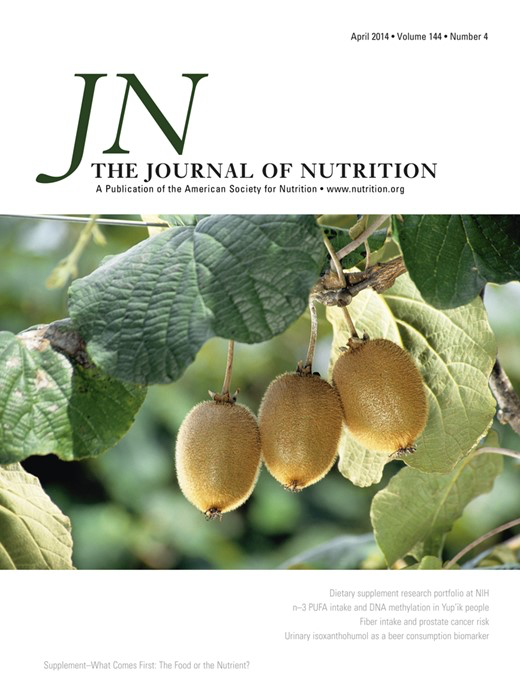
Is a Lower Dose of More Bioavailable Iron (18-mg Ferrous Bisglycinate) Noninferior to 60-mg Ferrous Sulfate in Increasing Ferritin Concentrations While Reducing Gut Inflammation and Enteropathogen Detection in Cambodian Women? A Randomized Controlled Noni
2023 Aug The Journal of Nutrition Fischer JAJ, Pei LX, Elango R, Hou K, Goldfarb DM, Karakochuk CD
Clinical Study Randomised Controlled Trial Iron DeficiencyA lower dose of iron amino acid chelate was not as effective as the standard iron salts dose in increasing ferritin levels in a predominantly iron-replete female Cambodian population.

Jian-Pi-Yi-Shen formula restores iron metabolism from dysregulation in anemic rats with adenine-induced nephropathy
2023 Aug Journal of Ethnopharmacology Li C, Huang H, Wang R, Zhang C, Huang S, Wu J, et al.
Experimental Study Animal Study Jian Pi Yi Shen Formula Chronic Kidney Disease AnaemiaThe herbal decoction Jian-Pi-Yi-Shen reduces symptoms of chronic kidney disease and anaemia by improving iron metabolism and inhibiting the JAK2-STAT3 signaling pathway.
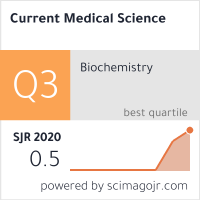
The Latest Research Advances of Danggui Buxue Tang as an Effective Prescription for Various Diseases: A Comprehensive Review
2022 Oct Current Medical Science Ma C, Jiang Y, Wang Y, Xu R
Based on TCM theory, DBT is mainly used to treat fatigue, thirst, weakness, women’s menstrual periods and postpartum fever, anemia, and other blood deficiency syndromes. Modern pharmacological experiments have demonstrated that DBT possesses a wide range of biological activities, thus showing remarkable medicinal value. The use of DBT can provide more treatment options for diseases with clinical manifestations such as hemocytopenia, DN, nerve damage, cardiovascular and cerebrovascular diseases, fibrosis, and cancer.
Review Article Huang Qi Dang Gui Bu Xue Tang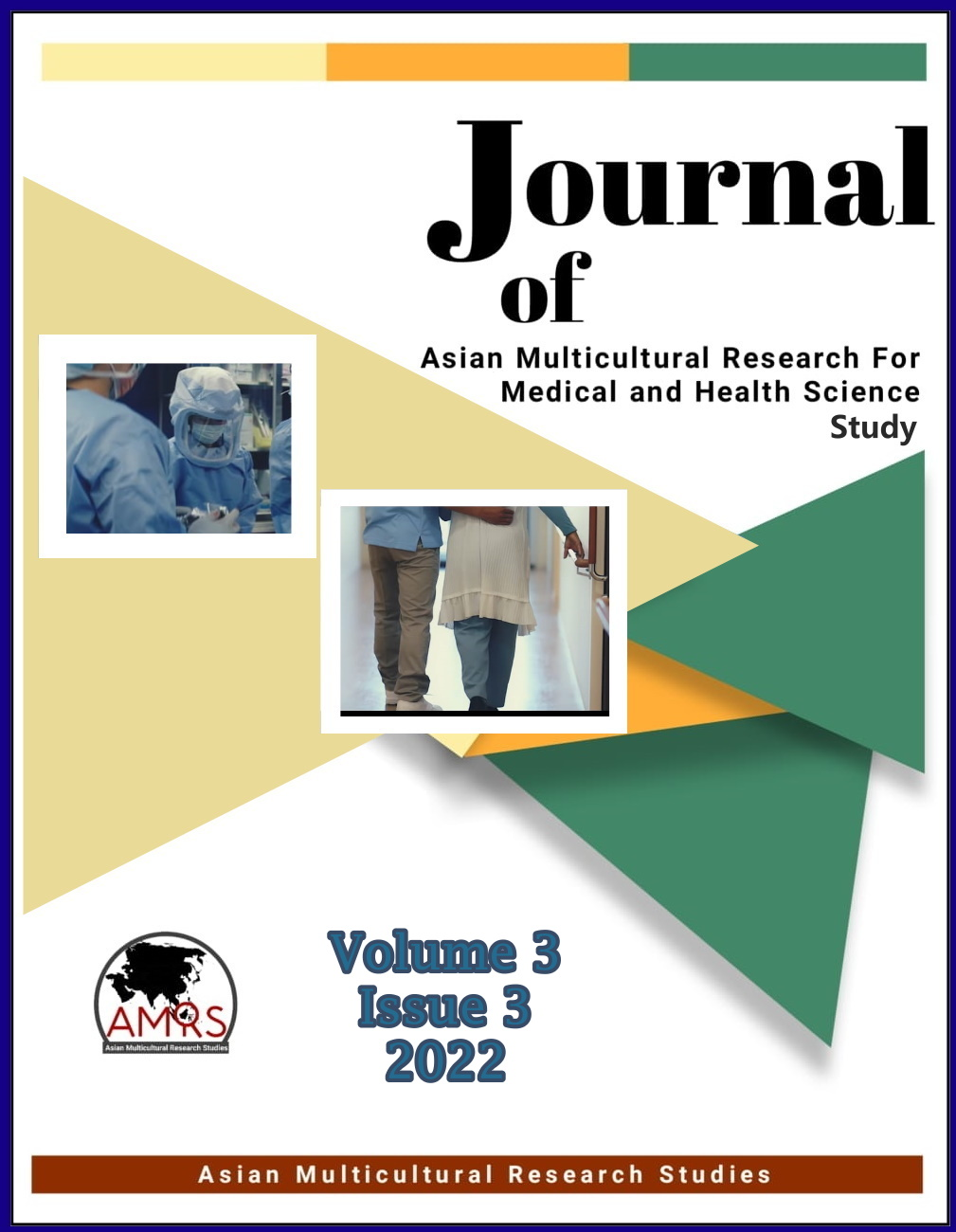
Effect of Honey to Levels Hemoglobin and Levels of 8-Hydroxy-2-Deoxyguanosin (8-Ohdg) in Pregnant Women with Anemia
2022 Aug 04 Journal of Asian Multicultural Research for Medical and Health Science Study A A, Astuti A, Leli L, Saad R
Randomised Controlled Trial Honey Anaemia Pregnancy HaemoglobinHoney, combined with Iron (Fe), effectively enhances hemoglobin levels and reduces oxidative stress markers in anemic expectant mothers.
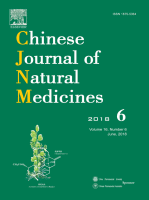
Exploring the mechanism of Buxue Yimu Pill on hemorrhagic anemia through molecular docking, network pharmacology and experimental validation
2021 Dec Chinese Journal of Natural Medicines XIONG Y, CAO XY, LIU BY, DAI YQ, ZHOU HJ, HE JJ, et al.
In conclusion, based on molecular docking, network pharmacology and validation experiment results, the enriching blood effect of Buxue Yimu Pill (BYP) on hemorrhagic anemia may be associated with hematopoiesis, anti-inflammation, and immunity enhancement.
Network Pharmacology Bu Xue Yi Mu PillResearch insights are moderated by the Research Hub team and offer an at-a-glance overview of interesting research findings.

2023 Journal of Ethnopharmacology
The herbal decoction Jian-Pi-Yi-Shen reduces symptoms of chronic kidney disease and anaemia by improving iron metabolism and inhibiting the JAK2-STAT3 signaling pathway.
Experimental Study Anaemia Chronic Kidney Disease Jian Pi Yi Shen Formula
Jian-Pi-Yi-Shen formula restores iron metabolism from dysregulation in anemic rats with adenine-induced nephropathy
Li C, Huang H, Wang R, Zhang C, Huang S, Wu J, et al.

2023 The Journal of Nutrition
A lower dose of iron amino acid chelate was not as effective as the standard iron salts dose in increasing ferritin levels in a predominantly iron-replete female Cambodian population.
Clinical Study Iron Deficiency
Is a Lower Dose of More Bioavailable Iron (18-mg Ferrous Bisglycinate) Noninferior to 60-mg Ferrous Sulfate in Increasing Ferritin Concentrations While Reducing Gut Inflammation and Enteropathogen Detection in Cambodian Women? A Randomized Controlled Noni
Fischer JAJ, Pei LX, Elango R, Hou K, Goldfarb DM, Karakochuk CD

2022 Journal of Asian Multicultural Research for Medical and Health Science Study
Honey, combined with Iron (Fe), effectively enhances hemoglobin levels and reduces oxidative stress markers in anemic expectant mothers.
Randomised Controlled Trial Anaemia Haemoglobin Honey Pregnancy
Effect of Honey to Levels Hemoglobin and Levels of 8-Hydroxy-2-Deoxyguanosin (8-Ohdg) in Pregnant Women with Anemia
A A, Astuti A, Leli L, Saad R
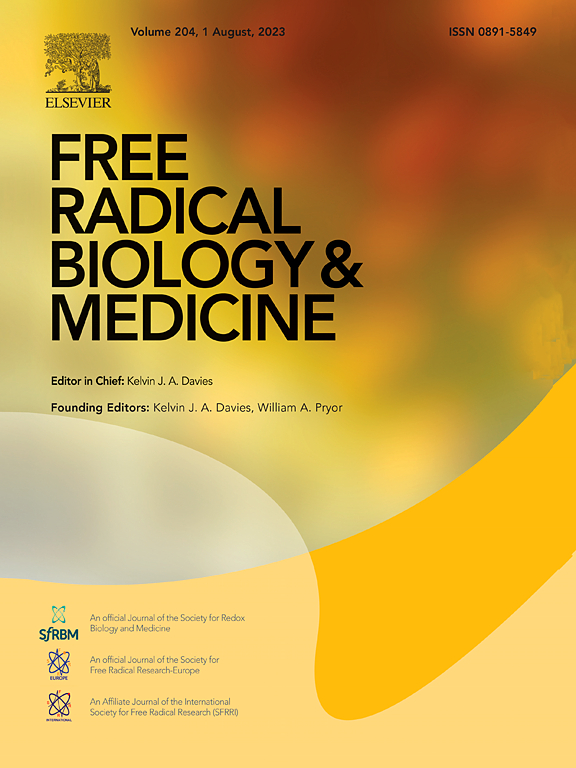
2021 Free Radical Biology and Medicine
Black pepper and its major component, piperine, can effectively regulate anemia of inflammation by reducing the overexpression of hepcidin, a hormone that controls iron levels.
Experimental Study Anaemia Black Pepper Hepcidin
Black pepper prevents anemia of inflammation by inhibiting hepcidin over-expression through BMP6-SMAD1/ IL6-STAT3 signaling pathway
Banerjee S, Katiyar P, Kumar L, Kumar V, Saini SS, Krishnan V, et al.

2020 Frontiers in Pharmacology
Flavonoids from jujube have been found to stimulate the expression of erythropoietin (EPO), a hormone stimulating blood production.
Review Article Anaemia Erythropoietin Iron Jujube
A Review of Edible Jujube, the Ziziphus jujuba Fruit: A Heath Food Supplement for Anemia Prevalence
Chen J, Tsim KWK
Review Articles
Review articles summarise and critically evaluate the current state of research on a specific topic or field by synthesising multiple primary research studies.

The Latest Research Advances of Danggui Buxue Tang as an Effective Prescription for Various Diseases: A Comprehensive Review
2022 Oct Current Medical Science Ma C, Jiang Y, Wang Y, Xu R
Based on TCM theory, DBT is mainly used to treat fatigue, thirst, weakness, women’s menstrual periods and postpartum fever, anemia, and other blood deficiency syndromes. Modern pharmacological experiments have demonstrated that DBT possesses a wide range of biological activities, thus showing remarkable medicinal value. The use of DBT can provide more treatment options for diseases with clinical manifestations such as hemocytopenia, DN, nerve damage, cardiovascular and cerebrovascular diseases, fibrosis, and cancer.
Review Article Huang Qi Dang Gui Bu Xue Tang
Zanthoxylum Species: A Review of Traditional Uses, Phytochemistry and Pharmacology in Relation to Cancer, Infectious Diseases and Sickle Cell Anemia
2021 Sep 15 Frontiers in Pharmacology Okagu IU, Ndefo JC, Aham EC, Udenigwe CC
This review demonstrates that Z. species are rich in a wide range of bioactive phytochemicals with multiple health benefits, but more research is needed towards their practical application in the development of functional foods, nutraceuticals and lead compounds for new drugs.
Review Article Acute Infectious Diseases Sickle Cell Disease Cancer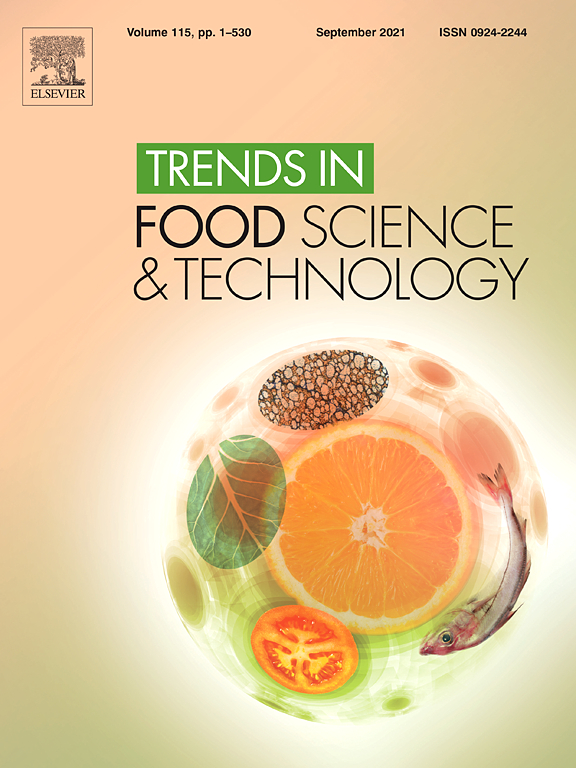
Prebiotics and iron bioavailability? Unveiling the hidden association - A review
2021 Apr Trends in Food Science & Technology Ahmad AMR, Ahmed W, Iqbal S, Javed M, Rashid S, Iahtisham-ul-Haq
Prebiotics show promise in improving iron absorption efficiency by influencing gut microbiota activity and luminal conditions, potentially offering a novel approach to combat IDA. Further research is necessary to solidify this connection and optimize strategies for enhancing iron bioavailability.
Review Article Prebiotic Iron Deficiency
A Review of Edible Jujube, the Ziziphus jujuba Fruit: A Heath Food Supplement for Anemia Prevalence
2020 Nov 26 Frontiers in Pharmacology Chen J, Tsim KWK
Review Article Jujube Anaemia Iron ErythropoietinFlavonoids from jujube have been found to stimulate the expression of erythropoietin (EPO), a hormone stimulating blood production.
Recent studies have indicated that jujube possesses a wide range of pharmacological activities in nervous system, cardiovascular system, as well as anti-oxidation and anti-cancer properties.

A Review of Edible Jujube, the Ziziphus jujuba Fruit: A Heath Food Supplement for Anemia Prevalence
2020 Nov 26 Frontiers in Pharmacology Jianping Chen and Karl W. K. Tsim
Flavonoid, polysaccharide and triterpenoid within jujube could serve as the potential active ingredients accounting for the aforementioned health benefits. Taken together, these findings provide several lines of evidence for further development of jujube as supplementary products for prevention and/or treatment of anemia.
Review Article Jujube Anemia AnaemiaClinical Trials
Clinical trials are research studies that involve people and are conducted to evaluate the safety and efficacy of new treatments or interventions, such as drugs, medical devices, or behavioural therapies.

Is a Lower Dose of More Bioavailable Iron (18-mg Ferrous Bisglycinate) Noninferior to 60-mg Ferrous Sulfate in Increasing Ferritin Concentrations While Reducing Gut Inflammation and Enteropathogen Detection in Cambodian Women? A Randomized Controlled Noni
2023 Aug The Journal of Nutrition Fischer JAJ, Pei LX, Elango R, Hou K, Goldfarb DM, Karakochuk CD
Clinical Study Randomised Controlled Trial Iron DeficiencyA lower dose of iron amino acid chelate was not as effective as the standard iron salts dose in increasing ferritin levels in a predominantly iron-replete female Cambodian population.

Effect of Honey to Levels Hemoglobin and Levels of 8-Hydroxy-2-Deoxyguanosin (8-Ohdg) in Pregnant Women with Anemia
2022 Aug 04 Journal of Asian Multicultural Research for Medical and Health Science Study A A, Astuti A, Leli L, Saad R
Randomised Controlled Trial Honey Anaemia Pregnancy HaemoglobinHoney, combined with Iron (Fe), effectively enhances hemoglobin levels and reduces oxidative stress markers in anemic expectant mothers.
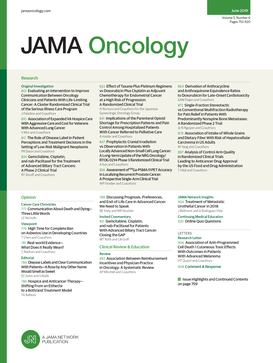
Metabolomics-Based Clinical Efficacy of Compound Shenlu Granule, a Chinese Patent Medicine, in the Supportive Management of Aplastic Anemia Patients: A Randomized Controlled Pilot Trial
2021 Sep 30 JAMA Oncology Feng Z, Hu X, Qu W, Zhu X, Lu J, Huang Z, et al.
SLG supportive treatment showed positive results in patients with AA, and metabolomics data indicated that SLG influenced aminoacyl-tRNA biosynthesis and glycerophospholipid metabolism to gradually return to normal.
Randomised Controlled Trial Shen Lu Granule Aplastic Anemia
The Efficacy and Safety of Vitamin C for Iron Supplementation in Adult Patients With Iron Deficiency Anemia
2020 Nov 02 JAMA Oncology Li N, Zhao G, Wu W, Zhang M, Liu W, Chen Q, et al.
Among patients with IDA, oral iron supplements alone were equivalent to oral iron supplements plus vitamin C in improving hemoglobin recovery and iron absorption. These findings suggest that on-demand vitamin C supplements are not essential to take along with oral iron supplements for patients with IDA.
Randomised Controlled Trial Vitamin C Anaemia Iron Deficiency Anaemia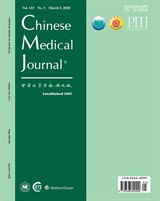
Acupuncture Improves Intestinal Absorption of Iron in Iron-deficient Obese Patients
2017 Mar 05 Chinese Medical Journal Xie XC, Cao YQ, Gao Q, Wang C, Li M, Wei SG
Randomised Controlled Trial Clinical Study Acupuncture Iron DeficiencyAcupuncture used for weight loss may increase the effectiveness of oral iron supplementation to treat obesity-related iron deficiency.
Study Protocols
Published study protocols are detailed plans that outline the objectives, methodology, statistical analyses, and organisation of a research study that have been made publicly available for others to review and use as a reference.
Presentation Slides

Experimental Study
The herbal decoction Jian-Pi-Yi-Shen reduces symptoms of chronic kidney disease and anaemia by improving iron metabolism and inhibiting the JAK2-STAT3 signaling pathway.
Li C, Huang H, Wang R, Zhang C, Huang S, Wu J, Mo P, Yu H, Li S, Chen J

Clinical Study
A lower dose of iron amino acid chelate was not as effective as the standard iron salts dose in increasing ferritin levels in a predominantly iron-replete female Cambodian population.
Fischer JAJ, Pei LX, Elango R, Hou K, Goldfarb DM, Karakochuk CD

Randomised Controlled Trial
Honey, combined with Iron (Fe), effectively enhances hemoglobin levels and reduces oxidative stress markers in anemic expectant mothers.
A A, Astuti A, Leli L, Saad R

Experimental Study
Black pepper and its major component, piperine, can effectively regulate anemia of inflammation by reducing the overexpression of hepcidin, a hormone that controls iron levels.
Banerjee S, Katiyar P, Kumar L, Kumar V, Saini SS, Krishnan V, Sircar D, Roy P

Review Article
Flavonoids from jujube have been found to stimulate the expression of erythropoietin (EPO), a hormone stimulating blood production.
Chen J, Tsim KWK

Review Article
Recent studies have indicated that jujube possesses a wide range of pharmacological activities in nervous system, cardiovascular system, as well as anti-oxidation and anti-cancer properties.
Chen J, Tsim KWK

Animal Study
Jian-Pi-Yi-Shen, a traditional Chinese medicine, helps treat anemia in chronic kidney disease by stimulating erythropoietin production and regulating iron recycling.
Wang F, Yu H, Huang S, Zheng L, Zheng P, Zhang S, Li S, Chen J
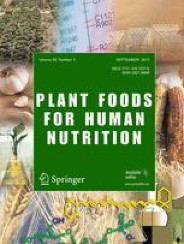
Experimental Study
Pomegranate juice has potential beyond ascorbic acid alone in enhancing iron absorption and assimilation, supporting Ayurveda's proposition of managing iron deficiency anemia with pomegranate.
Balasubramani SP, Varghese RK, Vishnuprasad CN, Venkatasubramanian P

Randomised Controlled Trial
Acupuncture used for weight loss may increase the effectiveness of oral iron supplementation to treat obesity-related iron deficiency.
Xie XC, Cao YQ, Gao Q, Wang C, Li M, Wei SG
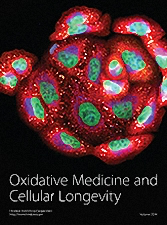
Experimental Study
Angelica Sinensis polysaccharide treatment has been found to effectively alleviate anaemia of chronic disease in rats by inhibiting inflammatory pathways and mobilizing iron.
Wang K, Wu J, Cheng F, Huang X, Zeng F, Zhang Y
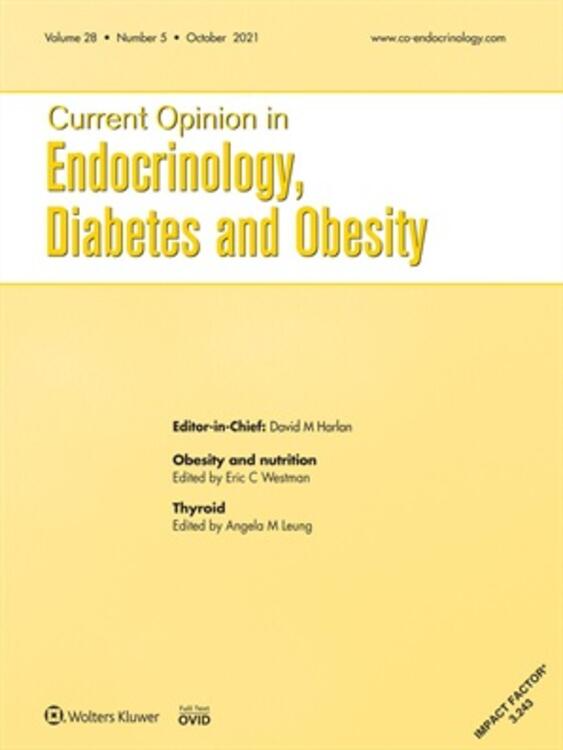
Review Article
Maintenance of sufficient vitamin D status may be important in preventing anemia, particularly in diseases characterized by inflammation.
Smith EM, Tangpricha V
Executive Summary
Write an executive summary in the form of a blog article on the topic of "Research into Chinese medicine treatment for Anemia" summarising the research below and using language that can be easily understood by patients and avoiding medical jargon using a professional and caring tone of voice.
Write an executive summary in the form of a blog article on the topic of "Researched Chinese medicine treatments for Anemia" summarising the research below in an objective and easy to understand way, and using language that can be easily understood by patients. Group the article into Chinese medicine treatments first, followed by nutrition and other treatments. Avoid using medical jargon and use a professional and caring tone of voice.
Write me a concise but easy to understand executive summary on the topic of "Chinese medicine treatments for Anemia" based on the following research that I will give you. Your summary should be 2 paragraphs long in Australian English spelling and include references to the studies.
A Experimental Study published in 2023 in the journal Journal of Ethnopharmacology found that The herbal decoction Jian-Pi-Yi-Shen reduces symptoms of chronic kidney disease and anaemia by improving iron metabolism and inhibiting the JAK2-STAT3 signaling pathway. Methodology used included an analysis of network pharmacology, chemical profiling, and in vivo experiments on the effect of Jian-Pi-Yi-Shen (JPYS) on renal anemia and chronic kidney disease (CKD). The active compounds in JPYS were detected in in vivo experiment, and their potential targets were predicted by network pharmacology. An animal model of CKD-related anemia was developed using adenine-feeding for further analysis. The estimation of renal injury was conducted using blood tests, histopathological examinations, and fibrosis degree assessment while the levels of JAK2, STAT3 and iron metabolism-related factors were measured through various techniques. Discussion of the results reveals that 164 active ingredients, including prototypes and metabolites in JPYS, were discovered and 21 core targets were identified. Many of these core targets were associated with the JAK2-STAT3 signaling pathways. Experimental results demonstrated that JPYS treatment significantly improved hematological parameters and iron metabolism in CKD rats, decreased certain indicators of renal damage, and suppressed the expression of JAK2 and STAT3.
A Clinical Study published in 2023 in the journal The Journal of Nutrition found that A lower dose of iron amino acid chelate was not as effective as the standard iron salts dose in increasing ferritin levels in a predominantly iron-replete female Cambodian population. The research used a double-blind, randomized placebo-controlled noninferiority trial conducted in Cambodia. Participating nonpregnant women, aged 18-45, were randomly assigned either 60mg ferrous sulfate, 18mg ferrous bisglycinate or a placebo for 12 weeks. Baseline and 12-week post blood and fecal samples were collected from the participants and used to measure ferritin and fecal calprotectin levels as well as to detect the presence of enteropathogens. The study found that mean ferritin concentration was higher at 12 weeks in those receiving ferrous sulfate dose compared to those receiving a lower dose of ferrous bisglycinate and a placebo. No significant changes were observed across the groups in terms of fecal calprotectin concentrations or detection of enteropathogens. Therefore, it was concluded that the 18mg dose of ferrous bisglycinate was not as effective as the 60mg ferrous sulfate dose in increasing ferritin concentrations.
A Randomised Controlled Trial published in 2022 in the journal Journal of Asian Multicultural Research for Medical and Health Science Study found that Honey, combined with Iron (Fe), effectively enhances hemoglobin levels and reduces oxidative stress markers in anemic expectant mothers. This quasi-experimental study with a pretest-posttest design involved 30 pregnant women divided into two groups: one receiving Fe (Control Group) and the other Honey + Fe (Intervention Group) for 60 days. Blood and urine analyses revealed a remarkable increase in hemoglobin levels in the Honey + Fe group (2.80 ± 0.26 g/dl), surpassing the Fe control group (0.80 ± 0.13 g/dl). Moreover, the Intervention Group demonstrated a notable decrease in 8-Ohdg levels (-4.23 ± 1.32 nmol/ml, p = 0.031), indicating reduced oxidative stress, while the Fe control group exhibited less significant changes (2.98 ± 1.30 nmol/ml, p = 0.322). Independent T Test confirmed the Honey + Fe group's superior effectiveness in increasing hemoglobin levels and decreasing 8-Ohdg levels in anemic pregnant women (p = 0.001 and p = 0.002, respectively). The study underscores the synergistic benefits of honey and iron supplementation in enhancing hemoglobin levels and mitigating oxidative stress among anemic pregnant women. The robust findings, supported by statistical significance, emphasize the potential clinical relevance of incorporating honey into anemia management strategies, offering a more effective approach compared to iron supplementation alone.
A Experimental Study published in 2021 in the journal Free Radical Biology and Medicine found that Black pepper and its major component, piperine, can effectively regulate anemia of inflammation by reducing the overexpression of hepcidin, a hormone that controls iron levels. The study involves a two-tier investigation, first in vitro, and then in vivo. In the laboratory, different black pepper extracts were interacted with a human liver cell line known as HepG2, and the one derived from methanol (BPME) showed the most promising result because it reduced the transcription of the hepcidin gene significantly. In addition to BPME, piperine was proven to almost entirely suppress hepcidin protein expression at specific concentrations. In the subsequent in vivo experimentation, live mice were artificially induced with an elevated level of hepcidin through oil of turpentine injections. Then they were administered with BPME and piperine, the effects of which significantly reduced the enhanced hepcidin expression. The molecular interaction studies further suggest that piperine directly binds with SMAD1 and STAT3 proteins, the critical factors behind the overexpression of hepcidin. The study found a demonstrable downregulation in hepcidin expression with the use of both the methanol extract of black pepper and the bioactive alkaloid piperine. These substances also interacted with some proteins to lower the overexpression of hepcidin initiated by inflammation. Additionally, there was a noticeable increase in iron bioavailability in the liver of treated test animals, pointing to the potential of these compounds to rectify anemia of inflammation. The findings posited black pepper as a possible therapeutic option for managing this anemic condition.
A Review Article published in 2020 in the journal Frontiers in Pharmacology found that Flavonoids from jujube have been found to stimulate the expression of erythropoietin (EPO), a hormone stimulating blood production. Jujube promotes erythropoiesis via activation of hypoxia inducible factor-induced erythropoietin, possesses potential capacity in recycling heme iron during erythrophagocytosis, exhibits bidirectional role in regulating immune response under different conditions, contains numerous minerals including iron.
A Review Article published in 2020 in the journal Frontiers in Pharmacology found that Recent studies have indicated that jujube possesses a wide range of pharmacological activities in nervous system, cardiovascular system, as well as anti-oxidation and anti-cancer properties. Traditionally in China, jujube is considered as a medicinal fruit that is being used in treating blood deficiency. In this review, the beneficial effects of jujubes on the hematopoietic functions are summarized and discussed. As illustrated in cell and animal models, the application of jujube extract possessed beneficial effects, including regulation of erythropoiesis via activation of hypoxia inducible factor-induced erythropoietin, potential capacity in recycling heme iron during erythrophagocytosis and bi-directional regulation of immune response. Thus, the blood-nourishing function of jujube is being proposed here. Flavonoid, polysaccharide and triterpenoid within jujube could serve as the potential active ingredients accounting for the aforementioned health benefits. Taken together, these findings provide several lines of evidence for further development of jujube as supplementary products for prevention and/or treatment of anemia.
A Animal Study published in 2020 in the journal Evidence-Based Complementary and Alternative Medicine found that Jian-Pi-Yi-Shen, a traditional Chinese medicine, helps treat anemia in chronic kidney disease by stimulating erythropoietin production and regulating iron recycling. To investigate the effect of Jian-Pi-Yi-Shen (JPYS), chronic kidney disease (CKD) was experimentally induced in rats using a 5/6 nephrectomy. The rats were then administered JPYS orally in both high and low doses for a period of 90 days. Observations were made regarding the serum hepcidin level to assess iron homeostasis. Additionally, the protein expressions of hypoxia inducible factor-2, erythropoietin, ferritin, ferroportin, and the phosphorylation level of extracellular signal-regulated kinase 1/2 were studied using Western blot analysis. The results showed that JPYS treatment significantly improved kidney function in the CKD rats. Alongside this, pathological kidney damage was found to be significantly restored post-JPYS treatment. The medicine was found to be effective in improving anemia in CKD through the upregulation of red blood cells, hemoglobin, and hematocrit levels. It was also discovered that JPYS stimulates the expressions of erythropoietin and hypoxia-inducible factor-2 proteins in the kidney and liver of the CKD rats, while inducing the phosphorylation of extracellular signal-regulated kinase 1/2 proteins. Furthermore, JPYS was seen to regulate the protein expressions of ferritin and ferroportin in the liver and spleen, as well as in the serum level of hepcidin, suggesting its role in systemic iron recycling.
A Experimental Study published in 2020 in the journal Plant Foods for Human Nutrition found that Pomegranate juice has potential beyond ascorbic acid alone in enhancing iron absorption and assimilation, supporting Ayurveda's proposition of managing iron deficiency anemia with pomegranate. The study applied a cell-free model imitating gastric and intestinal digestive procedures, along with cell-based models (in the form of Caco-2 and HepG2 cells), to evaluate iron dialysability in the presence of pomegranate juice. This method was utilized to observe iron uptake into cells, assessed via cellular ferritin content measures. Pomegranate juice highly improved iron dialysability in the cell-free model and increased iron uptake and ferritin content in the cells’ models far more than ascorbic acid alone. This result corroborates Ayurveda's claim regarding the beneficial usage of pomegranate in managing iron deficiency anemia, proposing a straightforward remedy to a global health issue. The betterment of iron bioavailability could be due to the synergistic action of various phytochemicals in pomegranate juice, suggesting a multifunctional utility for this natural product.
A Randomised Controlled Trial published in 2017 in the journal Chinese Medical Journal found that Acupuncture used for weight loss may increase the effectiveness of oral iron supplementation to treat obesity-related iron deficiency. The study was conducted on sixty iron deficient or iron deficient anemia patients who were also obese, in the Beijing Hospital of Traditional Chinese Medicine. They were divided into two groups: one group received an oral iron supplement combined with acupuncture treatment for weight loss (acupuncture group), and the other group received the oral iron supplement along with a placebo acupuncture treatment (control group). Over the course of eight weeks, anthropometric parameters were measured, and blood samples were tested before and after the treatment. The acupuncture group showed a significant decrease in body weight, body mass index, waist circumference, and waist/hip circumference ratio, while the control group showed no significant changes. The oral iron supplement seemed to bring more noticeable improvements in the iron status indicators in the acupuncture group than in the control group. In addition, the serum leptin and hepcidin concentrations, which impact iron absorption, declined significantly in the acupuncture group and were relatively stagnant in the control group. These results suggest that acupuncture-based weight loss treatment could boost intestinal iron absorption, likely through downregulation of systemic leptin-hepcidin levels.
A Experimental Study published in 2017 in the journal Oxidative Medicine and Cellular Longevity found that Angelica Sinensis polysaccharide treatment has been found to effectively alleviate anaemia of chronic disease in rats by inhibiting inflammatory pathways and mobilizing iron. The study utilized both HepG2 cells and rats suffering from Anemia of Chronic Disease (ACD) to assess the therapeutic efficacy of Polysaccharide. The cells and rats were administered the Polysaccharide, and the researchers observed its impact on two inflammatory pathways: the IL-6/STAT3 and BMP/SMAD. The Polysaccharide administration showed significant effects, inhibiting inflammatory hepcidin in both the cell sample and the rat population. Furthermore, in the rats, the introduction of the polysaccharide triggered an increase in ferroportin expression, which enabled iron to be transported from the liver and spleen, leading to increased serum iron levels. This also led to an elevation of serum EPO and a general relief from the anemia symptoms. Additionally, the treatment inhibited the NF-B p65 activation via the IB kinases-IB pathway, leading to a reduction in interleukin-6 and TNF- secretion - both of which are known to inhibit erythropoiesis. Hence, the study provides evidence for the potential use of polysaccharide as a treatment option for anemia of chronic disease.
A Review Article published in 2015 in the journal Current Opinion in Endocrinology, Diabetes & Obesity found that Maintenance of sufficient vitamin D status may be important in preventing anemia, particularly in diseases characterized by inflammation. Vitamin D has previously been found to be associated with anemia in various healthy and diseased populations. Recent studies indicate that the association may differ between race and ethnic groups and is likely specific to anemia of inflammation. The mechanism underlying this association involves the reduction of proinflammatory cytokines by vitamin D and the direct suppression of hepcidin mRNA transcription. There is also evidence that vitamin D may be protective against anemia by supporting erythropoiesis. Other calciotropic hormones including fibroblast growth factor 23, and parathyroid hormone have also been found to be associated with iron homeostasis and erythropoiesis.
Moderation Tools
Topic
Sign In
Users not signed in are limited to viewing the 5 most recent items of content.